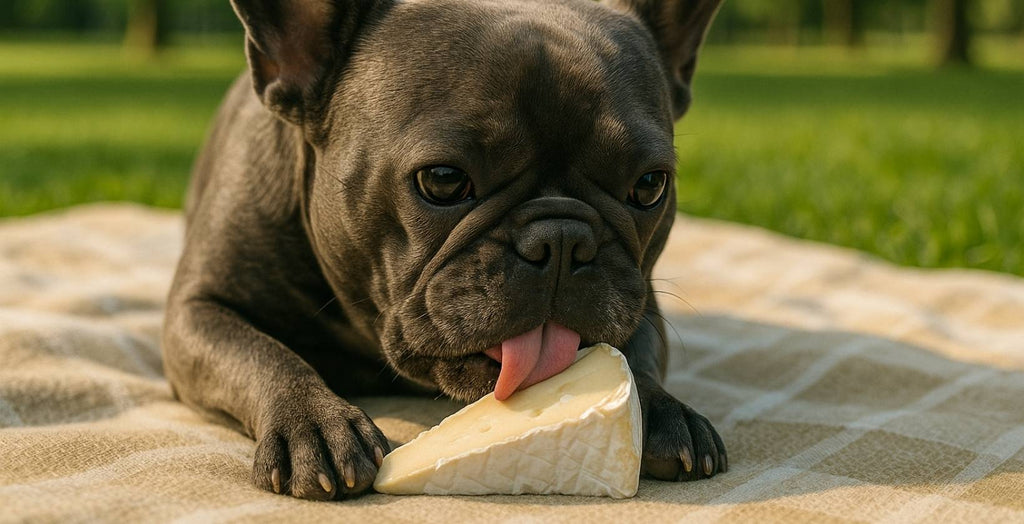Tips for a Safe and Dog Friendly Easter

As we indulge in the joy of Easter with loved ones, it’s important to make sure that you stay extra vigilant to make sure treats like chocolate bunnies and Easter eggs are kept well away from pets. Here are some dangers to watch out for and some thoughtful tips to help you and your dog enjoy a delightfully egg-cellent Easter at home together.
Safe treats for dogs this Easter

Some foods that are completely harmless to us humans cannot be handled by a dog’s digestive system and metabolism. But, while the choccy and hot cross buns are a definite no-go, there are still plenty of safe and deliciously healthy Easter treats your dog can enjoy.
-
A plain peeled hard-boiled chicken egg is a ripper of a protein boost.
-
Whip up some frozen “Easter eggs” by whizzing banana, pure peanut butter, and plain yoghurt. Pour the mix into an ice tray and pop it in the freezer for later
-
Design a treasure hunt by hiding pieces of healthy dog kibble in a snuffle mat, an empty egg carton, or a dog-friendly “kibble nibble” trail instead of their usual meal.
Check out our Dog Cookie Recipes Your Dog Will Drool Over!
School holiday vet checks
The Easter school holidays are the perfect time to finally book any overdue vet check-ups, vaccinations and heartworm injections. Involve the whole family by enlisting the kids to help schedule the appointment or remind you to pack the vaccination card (and your dog’s favourite treat!) for the vet visit. It’s an awesome opportunity to learn about responsible pet ownership and staying healthy.
Easter decorations: Choking hazards and intestinal blockages

If you like to go all out with elaborate decorations, just remember that some of these festive trinkets can pose a risk to your pooch. Small toy chickens, plastic decorative grass and ornamental eggs can easily be swallowed by your curious dog, leading to choking or even intestinal blockages. If your best friend is particularly nosy or a known foreign-body eater, supervise them closely and keep treats and decorations well out of reach to avoid any unexpected trips to the vet.
Hot cross buns with sultanas are toxic for dogs

Resist the temptation to share a hot cross bun with your dog this Easter. Hot cross buns can be toxic to dogs, and it’s the little sultana that’s the culprit. Even a small amount of raisins or grapes can lead to acute kidney failure, which can be fatal for some canines.
Veterinarians don’t yet fully understand how grapes and sultanas cause kidney damage in dogs, nor do we know exactly why dogs react differently. While some dogs may tolerate them in small amounts, clinical case reports have shown that dogs can become more susceptible to grape toxicity over time. Just because they have eaten them before and been okay, doesn’t mean they won’t become seriously unwell next time. Seek veterinary advice by phoning your local emergency clinic if you think your dog has eaten sultanas, grapes or raisins.
Chocolate Toxicity in Dogs

Show your dog just how selfless you are by keeping all the chocolate to yourself. You’re an exceptionally responsible human, even if they don’t fully understand the greatness of your sacrifice ;)
"As a veterinarian, I’ve seen my fair share of chocolate toxicity cases in the ER (emergency room), and Easter time is a particularly risky period for our furry family."
-Dr. Zoë
Theobromine, a xanthine alkaloid, is a substance found in chocolate that is toxic to dogs, leading to vomiting, diarrhoea, increased heart rate, abnormal heart rhythms, seizures or even death in severe cases. Xanthine alkaloids are a group of chemicals used as stimulants, including the caffeine in your morning coffee.
How your dog is affected depends on how much your dog has eaten, their size and the type of chocolate they have consumed. Dark cooking chocolate contains much higher levels of theobromine and caffeine than milk chocolate and hence is extremely toxic even in smaller amounts.
This chocolate toxicity calculator can help provide your veterinarian with information over the phone if you are certain of how much chocolate they have eaten. Always speak to your veterinarian straight away, as it could be a few hours before your dog shows signs of toxicity.
What to do if your dog has eaten raisins or chocolate:
Take your dog to the veterinarian as soon as possible. If caught early, veterinarians can help your dog to bring up their stomach contents and will feed them medical charcoal to remove and bind as much out of their system as possible.
Your veterinarian may also discuss monitoring kidney function through blood tests (for raisin toxicity), monitor their heart function through an ECG (for chocolate toxicity) and place your dog on an intravenous drip for 24 hours to rebalance kidney blood flow.
Cats and the Toxic Easter Lily

Image source: James St. John, CC BY 2.0 <https://creativecommons.org/licenses/by/2.0>, via Wikimedia Commons
While you’re keeping your dog safe this Easter, let’s not forget about our other furred family members, our cats. Easter lilies, though they smell divine, are extremely toxic to cats. As little as one or two leaves, or a small amount of pollen or petals, can cause poisoning in cats, leading to vomiting, poor appetite and even kidney failure. So if you’ve got a cat in your household and a bunch of beautiful Easter lilies, it’s probably best to give them to a neighbour or friend instead. Better safe than sorry.
Grab those dog-safe treats, put on your Easter Bunny ears and tag @petzyo on Instagram!
References
-
Reich, CF et al. Retrospective evaluation of the clinical course and outcome following grape or raisin ingestion in dogs (2005-2014): 139 cases. J Vet Emerg Crit Care. 2020 Jan;30(1):60-65
-
Brooks, W. Veterinary Information Network: Chocolate toxicity in Dogs. https://veterinarypartner.vin.com/default.aspx?pid=19239&id=4952115
-
RSPCA Knowledgebase: Are lilies toxic to cats? https://kb.rspca.org.au/knowledge-base/are-lilies-toxic-to-cats/






